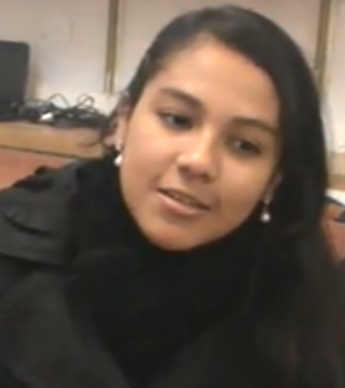Holidays Subscribe
Blogs
“The King in the Field”
~ Where spirit, nature and people meet An old-new Jewish movement overseas About three months ago I was privileged to participate in a formative event arranged by the JOFEE network (Jewish Outdoor, Food and Environmental Education), which took place in a convention center out in nature in the heart of the U.S. For three days we pored over texts describing events that have shaped us as a people, from the well-known "Lech Lecha" until today; we got to know and examine different projects, for example community gardens of various temples, or agricultural farms run ...
Shavuot and Vegetarianism
There are many connections between vegetarianism and the important Jewish festival of Shavuot: 1. Shavuot is described as "z'man matan Torateinu" (the season of the giving of our law (the Torah)). It is this Torah that has in its very first chapter God's original, strictly vegetarian, dietary regimen: "And God said: 'Behold, I have given you every herb yielding seed which is on the face of all the earth, and every tree, in which is the fruit of a tree yielding seed - to you it shall be for food'" (Genesis 1:29). 2. To honor the Torah, many Jews stay up the entire ...
A Shavuot Message: Applying Torah Values To Our Diets
Since Shavuot is z'man matan Torateinu (the commemoration of the giving of the Torah to the Israelites on Mount Sinai), many dedicated religious Jews admirably stay up the entire first night of Shavuot to hear talks about and discuss Torah teachings. Among these Torah teachings are that Jews should preserve human health, treat animals with compassion, protect the environment, conserve natural resources, help hungry people, and pursue peace. By becoming vegetarians, and preferably vegans, Jews would be partaking in a diet that is most consistent with these basic ...
Lag B’Omer & Vegetarianism (or Veganism): Making Every Day Count
By Daniel Brook & Richard H. Schwartz Lag B’Omer is considered a minor holiday in the Jewish calendar, but even a minor holiday is worth celebrating. A great way to celebrate Lag B’Omer is through veganism, as Lag B’Omer is deeply connected to veganism. If not quite ready for veganism, a shift to vegetarianism would be a great initial step. Lag B’Omer represents the 33rd day of the counting of the omer, the fifty days from Passover and Shavuot, reminding us of the link between these two holidays. While Passover celebrates our freedom from slavery, Shavuot ...
Greening Your Purim
The Jewish holiday of Purim, which begins this year on the evening of March 23, celebrates the deliverance of the Jews from their enemies in the biblical Book of Esther. Purim typically involves reading from the Megillah, dressing up in festive costumes , eating hamantashen and giving gifts of food and drink to others (Shalach Manot). With a little creativity, you can make this holiday more eco-friendly. Below are some suggestions: Do a clothing/costume exchange with friends: Instead of buying a new costume for the holiday, gather with friends (both adults ...
Yom Kippur at the Lincoln Memorial
YOM KIPPUR Day of Atonement/ At-Onement Lincoln Memorial, Washington, DC September 22-23, 2015 Sundown to Sundown For more information, and to RSVP, please visit the Facebook event page: Yom Kippur 2015 at the Lincoln Memorial Kol Nidre 6:30pm to 8:30pm Morning Service with Yizkor 10am to 1:30pm Minchah/Neilah 5:00pm to 7:45 pm, concluding with shofar blasts followed by a multi-faith vigil Yom Kippur is the holiest day in the Jewish calendar, a fast day for seeking both Atonement and At-Onement. At this moment in history, we humans ...
Tisha B’Av and Vegetarianism
There are many connections between vegetarianism and the Jewish holiday of Tisha B'Av: 1. Tisha B'Av (the 9th day of the month of Av) commemorates the destruction of the first and second Temples in Jerusalem. Today the entire world is threatened by climate change, and modern intensive livestock agriculture is a major contributor to greenhouse gas emissions. 2. In Megilat Eichah (Lamentations), which is read on Tisha B'Av, the prophet Jeremiah warned the Jewish people of the need to change their unjust ways in order to avoid the destruction of Jerusalem. Today, ...
Tisha B’Av in the Age of Climate Crisis: Interactive Discussion and Potluck Dinner
Tisha B'Av is a day of fasting and mourning in response to the destruction of the ancient Temple in Jerusalem, and other tragedies, with a traditional reading of the Book of Eicha, or Lamentations. Rabbi Katy Allen, rabbi of Ma'yan Tikvah and President of the Jewish Climate Action Network, will lead an experiential evening that will include going out outdoors to connect to the Earth. She will use selected passages Eicha and additional resources in juxtaposition with statements about climate change impact as the basis of our exploration of What Can Judaism Teach Us in the ...
Eden Village is hiring farm educator apprentices for 2015 growing season!
Eden Village Camp is Hiring! Submit Your Application About Eden Village Camp: Eden Village Camp aims to be a living model of a thriving, sustainable Jewish community, grounded in social responsibility and inspired Jewish spiritual life. By bringing the wisdom of our tradition to the environmental, social, and personal issues important to today’s young people, we practice a Judaism that is substantive and relevant. Through our Jewish environmental and service-learning curricula, joyful Shabbat observance, pluralistic Jewish expression, and inspiring, diverse staff ...
R&R Shabbat at the JCC
R & R: Shabbat at The JCC is an antidote to our 24/7 lifestyle. Make your Shabbat afternoon special and share in our community with workshops in art, yoga, meditation, food, music, study sessions, film, performances, creative art projects, spa experiences, and indoor and outdoor play. Enjoy programs for both children and adults. R&R is an amazing weekly opportunity to be together as a family and as a community; it’s an incredible alternative to the typical New York Saturday and it is our gift to you. Join us for programs that respect all levels of observance. ...
#Yemima, Rachel Imeinu and the Merit of Righteous Women
"When Moshiach [the Messiah] comes, I will be the first to rise up and be in the Holy Temple."
Make Your Thanksgiving Celebration Eco-Friendly
Thanksgiving, while an ecumenical holiday, is a great time to consider the Jewish principle of baal tashchit (do not waste). There are many things you can do to make your celebration of this holiday more earth friendly. Reduce, reuse and recycle as much as possible: Try to buy only as much food as you need and look for food that either has no container or that has a container that can be recycled. Plan to compost any non-meat food items that can't be eaten (such as carrot peel) or that have to be thrown out after the meal. Also plan to use reusable cloth napkins ...
Earth Etude for Elul 3 – Let it Rest
Earth Etude for Elul 3 - Let It Rest by Carol Reiman Let it rest-- the land that we have worked so hard, the grassy fare for geese now taken by the high tech labs, the water diverted far away to leave the old spot bare, the day diminished by our dense cramming, electronics robbing our eyes of moisture... Let it rest-- the fish sleep still near the bottom, the standing horse relaxes muscles, the cat stretches and curls... Let it rest-- the yawn exchanges stale air for fresh, cells grow, the blood flows with its passengers for new destinations, ...
Spread over all of us the Sukkah of shalom, salaam, paz, peace!
Can our Sukkot become not only symbols but peacemaking sanctuaries for both "adam" and "adamah"? As we enter the Shmita / Sabbatical Year, we may be asking what its content might be. We can begin, just a few days before Rosh Hashanah, joining the several dozen Jewish organizations that will take part in the People’s Climate March in New York City, Sunday Septembr 21, beginning at 11:30 am. Then on Rosh Hashanah (which can mean “New Year” or “Start of Transformation”), we might celebrate what the tradition sees ...
Tisha B’Av and Vegetarianism
Jews can enhance their commemoration of the solemn but spiritually meaningful holiday of Tisha B'Av by making it a time to begin striving even harder to live up to Judaism's highest moral values and teachings. One important way to do this is by moving toward a vegetarian diet. Please consider: 1. Tisha B'Av (the 9th day of the month of Av) commemorates the destruction of the first and second Temples in Jerusalem. Today the entire world is threatened by destruction by a variety of environmental threats, and modern intensive livestock agriculture is a ...
Are There Special Foods to Welcome Shmita?
Rabbi Nina Beth Cardin has suggested that for the Erev Rosh Hashanah meal which this year, on Wednesday evening September 24, begins the Shmita Year of Shabbat Shabbaton, we have a seder plate, with seven items (marking the seven-ness of Shmita). What might these seven be? Already nominated: bread (like challah for Shabbat, should this be a “woven” bread? round, for the cycles, as is a traditional Rosh Hashanah challah? how about woven into seven spirals?), an apple, honey, wine, pomegranates. What might the others be, and ...
Can we see all Earth as our Holy Temple of today?
There are two crises in the world today that call especially for Jewish responses: One because it involves the future of a state that calls itself “Jewish,” and of its supporters in America -- their spiritual, intellectual, ethical, and physical futures – at a moment when the relationship between Jews and our Abrahamic cousins of Palestine is filled with violence that threatens to kill more people, breed more hatred, and poison the bloodstream of Judaism and Jewish culture; The other because it calls on Judaism as –- probably uniquely -- a ...
Yovel: Divine Sparks in New York
By Yael Schonzeit "One generation goes, another comes," reads Kohelet (Ecclesiastes), "but the Earth remains the same forever." The sun will rise, the wind will blow and the rivers will continue to flow into the sea, uncontrollable no matter what we do. As the most recent natural phenomenon of Sandy has shown us, nature is so much larger than us. The Earth is unpredictable and holds endless power and strength. We as humans tend to forget that we are partners with God in creation. Part of our role is to maintain the planet's homeostasis, to ...
The Seder’s Innermost Secret — Charoset: Earth & Eros in the Passover Celebration
There it sits on the Seder plate: charoset, a delicious paste of chopped nuts, chopped fruits, spices, and wine. So the question would seem obvious: "Why is there charoset on the Seder plate?" That's the most secret Question at the Seder – so secret nobody even asks it. And it’s got the most secret answer: none. The Haggadah explains about matzah, the bread so dry it blocks your insides for a week. The Haggadah explains about the horse-radish so bitter it blows the lid off your lungs and makes breathing so painful you wish ...
Freeing Ourselves at Passover From Diets That Harm Us and Our Planet
Some Jews commendably go to extraordinary lengths before and during Passover to avoid certain foods, in keeping with Torah mitzvot. But at the same time, many continue eating other foods that, by Torah standards, are hardly ideal. On Passover, Jews are prohibited from eating, owning, or otherwise benefiting from chometz, foods such as breads, cakes, and cereals, that are made from one of the five grains (wheat, barley, rye, spelt, and oats) that ferment from contact with liquid. These prohibitions are based on several Torah verses and are observed with great care by ...










